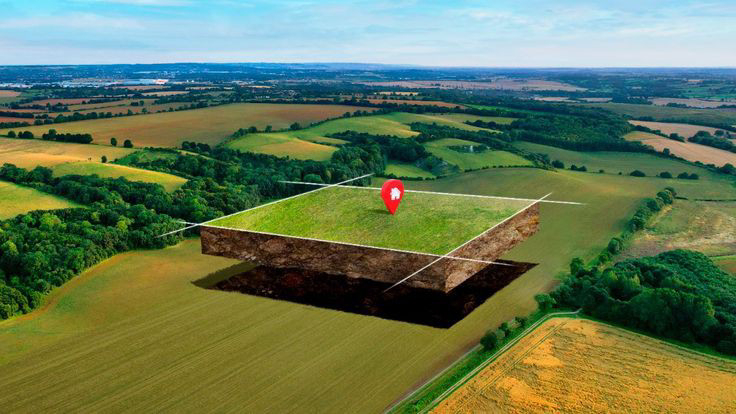The Uncharted Territory: Weighing the Pros and Cons of Buying Landed Properties in Developing Towns
For many aspiring property owners and savvy investors, the allure of prime real estate in bustling city centers often overshadows other, perhaps less obvious, opportunities. However, a significant frontier of potential lies in developing towns. These emerging areas, often just on the cusp of significant growth, offer a unique set of advantages and disadvantages when it comes to landed property investments. At Veeki Estate, we believe in empowering you with informed choices, so let's delve into the uncharted territory of developing towns.
The Double-Edged Sword: Benefits and Drawbacks of Investing in Developing Towns
Investing in landed property in a developing town is a bit like planting a sapling – it requires patience and foresight, but the growth can be extraordinary.
The Pros: Why Developing Towns Sparkle with Potential
1. Affordability: This is often the biggest draw. Land prices in developing towns are significantly lower than in established urban centers. This means a lower entry barrier for investors and a chance to acquire larger plots of land for the same budget.
2. High Appreciation Potential: As infrastructure improves, businesses move in, and populations grow, the value of land in these areas can skyrocket. You're getting in on the ground floor, poised to benefit from future development.
3. Government & Private Sector Focus: Developing towns are often targets for government infrastructure projects (roads, electricity, water supply) and private sector investments (factories, commercial centers). These developments directly boost property values.
4. Room for Growth and Expansion: Unlike congested cities, developing towns offer ample space for new residential, commercial, and industrial developments, which fuels further appreciation.
5. Opportunity for Visionary Development: If you're an investor with a long-term vision, you might be able to influence the development of the area, perhaps by building a housing estate or a commercial complex that caters to the growing population.
The Cons: Navigating the Potential Pitfalls
1. Lack of Immediate Amenities: Developing towns might lack the sophisticated infrastructure and amenities (hospitals, schools, shopping malls, recreational facilities) found in major cities. This can be a deterrent for some buyers looking for immediate comfort.
2. Slower Appreciation in the Short Term: While long-term growth potential is high, short-term appreciation might be slower compared to hot urban markets. Patience is key.
3. Liquidity Challenges: It might take longer to sell a property in a developing town compared to a high-demand urban area, especially if the area's development is slower than anticipated.
4. Due Diligence is Paramount: Land ownership and documentation can sometimes be less streamlined in developing areas. Thorough due diligence, including verifying land titles and boundaries, is absolutely crucial to avoid future disputes.
5. Infrastructure Uncertainty: While development is expected, the pace and scope of infrastructure projects can sometimes be unpredictable, impacting the rate of property value appreciation.
The Horizon Beckons: Unlocking Growth and Development
The magic of developing towns lies in their inherent potential for growth. Many of these areas are strategically located near major transportation routes, natural resources, or existing industrial hubs. As urban centers become saturated, businesses and individuals increasingly look to these burgeoning areas for more affordable living and operational costs.
We've seen countless examples in Nigeria where what was once a quiet village transforms into a bustling town within a decade, driven by new industries, government initiatives, and a burgeoning population. Investing early means you're buying into this future, not just the present.
A Spectrum of Choices: Property Types and Affordability
The beauty of developing towns is the variety of properties available at attractive price points. You'll typically find:
1. Undeveloped Land Plots: These are the most common and often the most affordable, offering the ultimate flexibility for future development, be it residential, commercial, or agricultural.
2. Residential Plots: Specifically zoned for housing, these are ideal for building your dream home or a residential rental property.
3. Commercial Plots: Strategically located plots suitable for shops, offices, or other business ventures, anticipating future commercial activity.
4. Agricultural Land: For those with a vision for farming or agri-business, large tracts of fertile land are often available at competitive prices.
The affordability in these areas often means you can acquire a much larger plot of land for the price of a small apartment in a major city. This opens up possibilities for various investments that might otherwise be out of reach.
Your Next Smart Move: Consider the Potential of Developing Towns
While developed areas offer stability, developing towns offer exponential growth. At Veeki Estate, we encourage you to look beyond the immediate and envision the future. If you're an investor with a long-term perspective, a risk-averse individual seeking high appreciation, or someone looking to build a substantial asset without breaking the bank, the potential of landed properties in developing towns is simply too great to ignore.
Ready to explore the exciting possibilities? Contact Veeki Estate today! Our team of experts specializes in identifying promising locations in developing towns and guiding you through the due diligence process to ensure a secure and rewarding investment.




Comments
Post a Comment